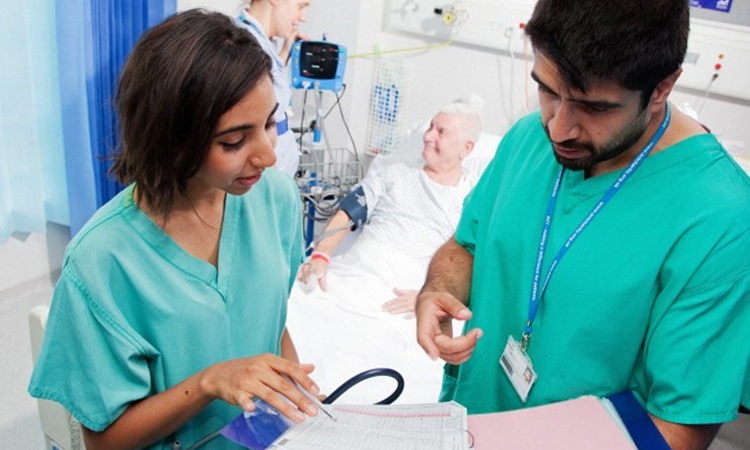Previous
Resources for influencers
If you are an educator, adviser, or caregiver, you have a vital role in encouraging career exploration.
It's important for young people to make supported and informed choices about their future study, training, and work options. This means they are better able to maximise their talents. Your Med Future is a starting point to support career exploration where there is interest in a career in medicine.
On this page, you'll find links to useful resources that support educators and advisers in their essential role in career learning. Additional resources are also available for parents and carers.

Career exploration is a learning cycle that includes researching, evaluating, and analysing information about various job opportunities. It empowers young people to identify their career interests. It also helps them to discover pathways to those careers, including choosing the right study options at the right time.
Learning about career exploration earlier in life can make a huge difference for young people. It helps them understand their options and make informed progression decisions. However, it is never too late to start exploring their future work options, especially if they don’t feel they’ve found the right career pathway.

You may already be supporting a young person who has decided to become a doctor. This is a good time to recap what has informed their career choices. It will help make sure you’re supporting actions based on a well-thought-out and informed decision-making process.
The 4 stages of career exploration are research, evaluation, discussion, and decision. Useful open questions at each stage include:
The following booklet from the Medical Schools Council includes lots of information and suggestions to support you. Download A journey to medicine: Preparing your students [PDF].
The UCAS website has helpful guides for the locations of the 5 Scottish medical schools. This is useful information to signpost students when they are considering where to apply:
Find out more about choosing a medical school in Scotland.
Once a young person has decided to apply to medical school, preparing their UCAS application is the next step. Your Med Future aims to make sure that applicants and their supporters have a clear understanding of:
The Medical Schools Council provides a useful guide to help you understand the UCAS application process. Download A journey to medicine: The UCAS application [PDF].
Students will need to complete an aptitude test and attend medical school interviews as part of their application to study medicine.
UCAT is used by all Scottish medical schools as part of the admissions process, which also includes:
There are several key dates which are confirmed and published in January each year.
Find out more about the UCAT timeline.
The UCAT test is changing slightly this year. However, all the supporting content on the UCAT Consortium website will be updated by 1 March 2025.
Discover UCAT resources for teachers and advisers.
Medical school interviews are one of the final stages in the admissions process. Most medical schools in Scotland have adopted the multiple mini-interview (MMI) format, used to assess applicants' essential skills and attributes.
MMIs usually consist of 4 to 7 different interview stations, which applicants rotate through in a timed circuit. At each station, which lasts between 5 and 7 minutes, applicants are tested on different personal qualities or skills. This includes empathy, communication, and motivation to study medicine.
Mock MMI sessions can play an important role in preparing students for medical school interviews. We encourage educators to schedule sessions that simulate the MMI format with multiple examiners and time restrictions. This will provide a realistic environment where students can:
The Medical Schools Council has created a guide to help educators run mock MMI sessions. It includes:
All UK medical schools welcome applications from disabled people and those with long-term conditions. In most cases, reasonable adjustments can be made to support them during their medical school studies and clinical placements. The perspectives and experiences of disabled medical students have a positive impact on education, workforce culture, and patient care.
The Medical Schools Council has produced a useful resource for disabled applicants. You may wish to read and refer to it in any discussions with your students.
You may also find it useful to review this guide, which was written for medical school staff. It suggests how to support disabled people during the application and admissions process [PDF].


